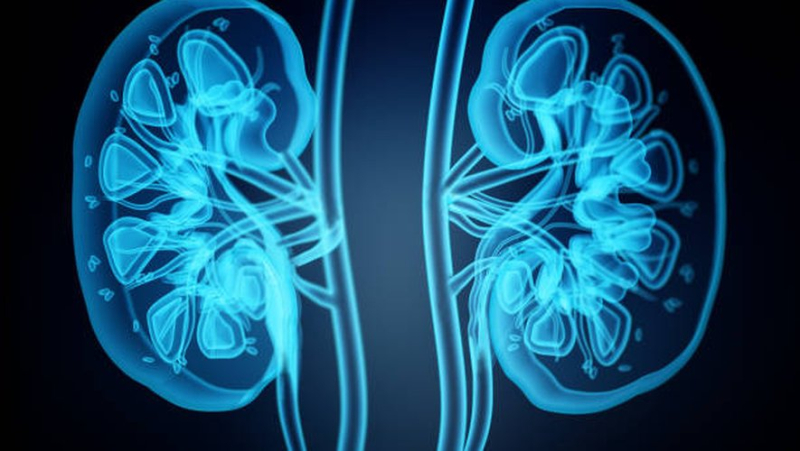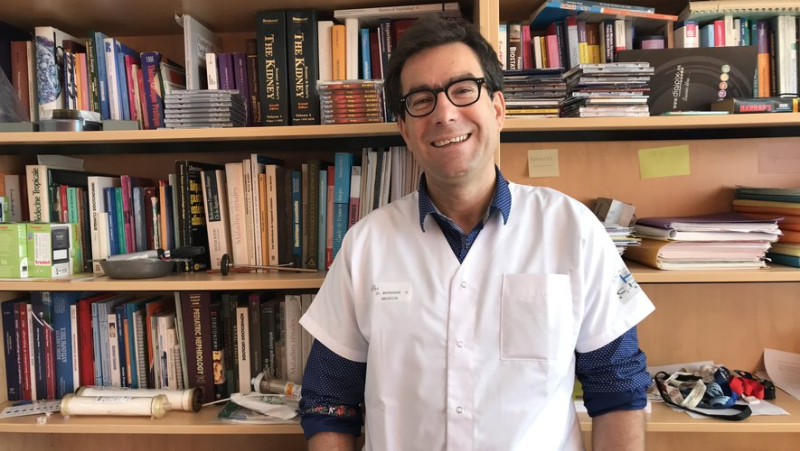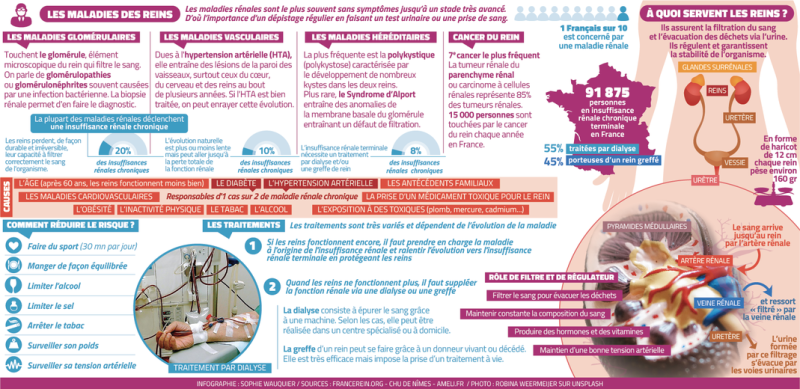National Kidney Week: “One in ten French people have a disease but we are only talking about 0.1% of the population receiving a transplant or dialysis”

La journée mondiale du rein, le 14 mars, sensibilise à la prévention de pathologies qui touchent 10 % des Français.PIXABAY PIXABAY – adventtr
In France, 6 million people suffer from chronic kidney disease, one in ten people. Without appropriate care, patients risk developing a severe form which will require dialysis or a transplant. On the occasion of National Kidney Week, from September 9 to 16, Professor Moranne, from Nîmes University Hospital, recalls the benefit of screening for populations at risk.
Professor Olivier Moranne is head of the nephrology department at Nîmes University Hospital.

Professor Moranne recalls that new drugs, available for two years, allow treatment very early. PIXABAY
One in ten French people suffer from chronic kidney disease, how should we interpret this frightening figure ?
Since the 2000s, we have had a fairly broad definition of chronic kidney disease: it ranges from early to advanced stages, and includes renal aging.
We know that this kidney damage which is asymptomatic in the early stage can become complicated or progress. The people who are directly affected are those who already have high blood pressure, diabetes, heart failure. These are often people who have other chronic pathologies, and there are many elderly people because we mix renal aging and kidney disease.
If we want to reach these 10% of people, the only way is to screen them with biological assessments. There are two types, a blood test and a urine analysis, looking for a protein, albumin. When it is in excess in the urine, it is a marker of cardiovascular risk, heart attack, stroke, and kidney disease. Screening is interesting, but apart from stressing people out, it is only of interest if there is therapy behind it. We have been fortunate to have for two years more and more very well tolerated molecules which have shown a benefit in terms of reduction in cardiovascular events and progression of kidney disease towards an advanced stage, and there, your vital prognosis is at stake. We are led to offer dialysis or a kidney transplant.
At 90, we all have, or will have, kidney disease ?
Exactly, and that's a limitation of the definition of chronic kidney disease. As I often say to my patients, in a perhaps more understandable parallel with the skin: at 90, you can have wrinkles, but you can also have melanoma. For the kidneys, if you only have "wrinkles", that is to say kidney weakness, you will need to be careful to hydrate well and take medication. If you have a more serious problem, you will need slightly more specific treatments.
How often should you get tested ?
According to current best practice recommendations, kidney function should be monitored and albumin detected in the urine of all hypertensive and diabetic patients, those with chronic inflammatory diseases, & nbsp;at least once a year.
But from a medico-economic point of view, it is not profitable to do it on the general population.

Many pathologies can affect the kidneys. PIXABAY – SOPHIE WAUQUIER
When you are not "at risk", it's not relevant to test yourself ?
A priori, no. Especially since until now, we have not screened the target populations enough. But we didn't have many medications to offer them either. The treating doctors are now following us because we know that there are medications that are low in toxicity and easy to prescribe.
"There are 1,500 nephrologists in France, they can't keep up with everyone"
By general practitioners ?
Yes.
Which de-dramatizes the problem and simplifies treatment. No need to make an appointment with a nephrologist ?
Exactly. 10% of the population is enormous, and there are 1,500 nephrologists in France. They can't keep up with everyone.
We follow dialysis or transplant patients, who represent 0.1% of the population. That's 90,000 patients.
While we often associate kidney disease with transplant or dialysis…
For fifteen years, the activity of the discipline has evolved significantly to prevent this chronic disease from reaching an advanced stage.
"Every year, 30% of patients start emergency dialysis"
You were talking about silent illnesses, back pain cannot be linked to a kidney problem ?
No, the problem with the kidneys is that they don't hurt. Among the symptoms, there is high blood pressure, but it is not specific. That's not why you have kidney disease, but we have to look for kidney disease.
If you have ankle edema, too.
At the beginning of the disease, the symptoms are non-specific. On the other hand, at the advanced stage, when you start to have a yellow complexion, or you smell urea, it's too late, you need to put yourself on dialysis. When I started my studies, we were mainly interested in the advanced stages.
Today, support remains late?
I work in the kidney registry of the biomedicine agency which records the number of transplant and dialysis patients in France. Every year, we have around 10,000 patients who enter dialysis in mainland France. Among them, 30% started in an emergency, either because they did not know they were ill, or because they did not want to seek treatment. < /p>
Today we are trying to promote living donor transplantation to avoid going through dialysis.
"Kidney week is an opportunity to think about screening"
Among kidney diseases, there is also cancer: 15,000 new cases per year, 5,000 deaths… it is also a silent condition ?
It's a cancer that benefits from therapeutic advances, and in particular the contribution of immunotherapies, which enormously advances treatment. The problem with cancer is also screening, for example via urine. If you take it early, you can do surgery.
But it's actually a cancer with few symptoms.
Screening in the Carémeau hall on March 14
The Nîmes University Hospital, the France Rein Gard Lozère association and Aider Santé are setting up a kidney disease screening stand in the central hall of Nîmes University Hospital, on March 14, from 9 a.m. to 3 p.m. 5 p.m., à on the occasion of World Kidney Day.
The procedure is simple: it is a test on a urine sample.
How to advance screening ?
Our Dutch colleagues have launched an interesting experiment. Modeled on the colorectal cancer screening kit, they send a bottle and a strip to patients' homes so that they can do a test at home which reveals the abnormal presence of substances in the urine, white blood cells, red blood cells, albumin. I'm trying to work on this. Kidney week, during which screening is offered, is an opportunity to reflect on these questions.
The kidney remains a little-known organ ?
As part of screening, we work on the representations of diseases, and you are right, the kidney remains a little-known organ. When we talk about kidney disease, we only talk about kidney failure, dialysis and transplant. It's extremely important but it's only 0.1% of diseases, I repeat.
The kidneys secrete hormones and some will be factors of hypertension, and they allow our cells to stay alive in a bath where they regulate the quantity of water, the quantity ions, and they eliminate the waste.




